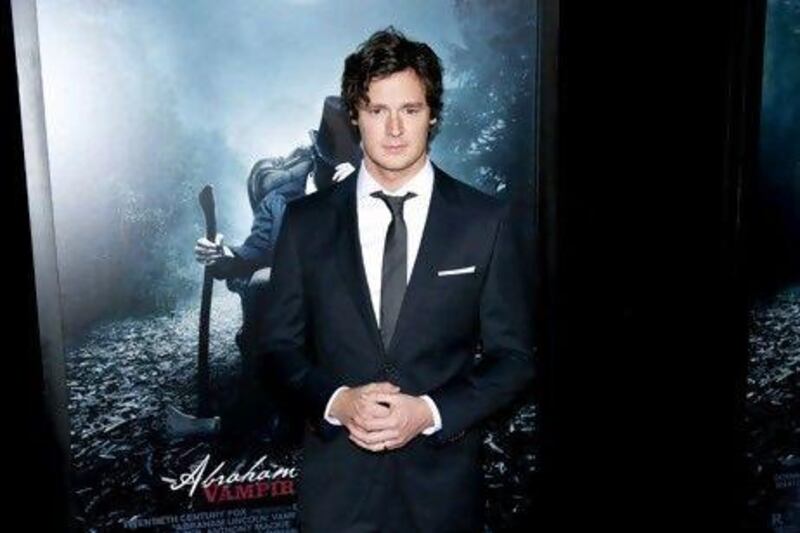Although the American actor Benjamin Walker may not be familiar to most audiences, he is about to become one of the newest stars on the Hollywood scene. Having made a name for himself in theatre (reportedly turning down a role in X-Men First Class to appear in the award-winning Broadway production Bloody Bloody Andrew Jackson), he now plays the title role in Abraham Lincoln: Vampire Hunter which opens in the UAE today. The fantasy action film is produced by Tim Burton and directed by the Wanted filmmaker Timur Bekmambetov, creating a fictional portrayal of the famous US president's "secret life" as a vampire slayer, based on the mash-up novel by Seth Grahame-Smith. However, as the actor reveals, a very serious approach was taken towards the film.
This is your first starring role. Did you feel intimidated during the audition process going up against perhaps more seasoned film stars?
I actually didn't really get my hopes up about it. They were talking to me but I also knew they were talking to a few other actors, some big movie stars, so I treated the whole thing as a chance to meet some filmmakers I admired and as a learning experience, but I was overjoyed when they gave me the part.
How did you approach the task of playing one of the most well-known presidents as we've never seen him before?
I had to approach it as a portrayal of Abraham Lincoln, not as a portrayal of Lincoln in the fantastic world of the movie. If I think in terms of a vampire film, or an action film, I'm doing the real-life figure a disservice. This film to me is a drama in many ways. The film, like the book, interweaves the real events from Lincoln's life with the vampires and the adventure, and real events required a degree of accuracy. So I had to get all the other stuff out of my head and concentrate on giving as true a portrayal of him as possible.
What kind of research did that involve?
There is, as you can imagine, hoards of information on him - biographies, films, documentaries - so it was a case of picking out the studies which were most suited to the portrayal. There was also some astounding detail in what is seen on screen, such as the clothes he wears or what he had in his pockets, which isn't even seen in the film.
Despite this serious approach, there are still some big action sequences in the film. Anyone who has seen any of Timur's films will know he has a very unique imagination; it was fantastic to be a part of it and observe it every day. He can provide a perspective on how a sequence should be carried out, how to execute the fight scenes in a way that's exciting and original. There's also the influence of someone like Tim Burton who had his own input on the story, how the film should look. I think audiences are going to be very surprised at the finished product - it combines a great American hero with this wild, entertaining story.
The film is in 3D. Was this necessary for this type of film or is it simply an added effect?
I think 3D adds to the enjoyment, certainly. I like watching films in 3D, and there have been truly outstanding examples of movies that were shot in 3D. Timur used the 3D to aid the sense of danger, to make the audience feel the threat. Using 3D for the sake of it was never in his plans at all, it always had to serve what was happening in the film.
Are there any other parts or historical figures you would like to take on in the future?
I don't know, I just want to work with talented people like Timur, and have as much of a positive experience as I did on this film. I never expected to get the opportunity to do something like this so I want to be open to all possibilities.
Follow
Arts & Life on Twitter
to keep up with all the latest news and events
[ @LifeNationalUAE ]





